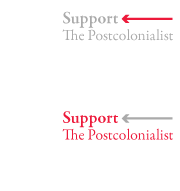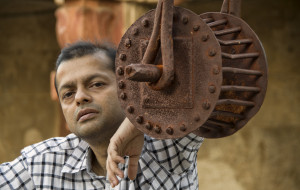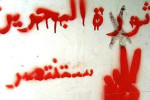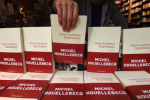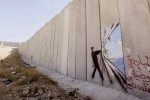- As if it is the same thing
- As milk from her breasts.
- As if it is something which flows secretly
- Between us like a memory
- Growing deeper as it vanishes.
- Other people of my terrified childhood
- Have come and left with momentary hands
- And receding eyes in my mother tongue.
- Elders with cavities in the heart
- Poured their love like saliva.
- It is difficult to wash away their sticky memory
- From my mother tongue.
- Father was a shadow from door to door
- In my mother tongue.
- His voice of stern hands and hurried blood
- Was different from mother’s voice of rice and barley
- During many illnesses.
- The language of friends in my mother tongue
- Is a story where I learnt about my past.
- The story of stolen guavas of toppled kingdoms
- Forest fires, puberty and heroic love.
- I grew up mostly away from my mother tongue.
- I stepped out of the house to know streets and loves
- Outside the lullabies of my mother tongue.
- I fell in love with melodies and eyes from other languages.
- The smell of strangers swayed in the air
- Between suspicion and love.
- My mother allowed me to bring home
- Other languages with their bottomless snares.
- I grew many vices from them behind my mother’s back
- But she could always squeeze out the story
- From my shadow.
- I do not know the story of my mother tongue
- Before I was born. Maybe she fell in love with strangers
- From other languages like I did. Maybe that is how
- She brought in new words to her tongue
- And lost some of her own.
- Maybe she wanted to run away from home
- The morning she had gone to pick flowers
- For treacherous gods.
- Maybe that morning she wanted to change
- Into a language of flowers that get stolen from gardens
- But never reach the altar.
- The story of my mother tongue
- Goes as far back as Kunti[1].
- She alone held the secret of the four men
- Who gave birth to her sons.
- Her silence gave birth to a mythology.
- Her secret is however part of my mother tongue.
- You speak of the mother tongue as if some tongue
- Has been fixed into someone’s mouth like a tattoo.
- What always stuck on my mother’s tongue
- Would be stains of slaked lime and catechu.
- You who speak of the mother tongue
- Like law-makers of the fictional history of lives
- And the yellow grammar book do not ask me
- What my mother tongue is but rather ask
- How is my mother tongue
- And I would tell you how my mother tongue
- Is a jar of pickles preserved under a rotten shade.
- I would tell you how my mother tongue
- Like the dark side of the moon hides from my daily life
- Like medicines in the cupboard.
- I would tell you how her speech and her eyes
- Have lost each other’s company.
- I would tell you how she tends to flower trees
- In the absence of her children
- And still has tears for old songs of love.
- I will tell you how her unsteady feet
- Still manage to hold her heart.
- I would tell you how her tongue bore lives
- Of different names as she became daughter wife
- And mother with no time to decide how
- She would like to be as a woman.
- My mother tongue was never allowed
- To become a woman.
- To name our tongue in the name of
- Her motherhood
- Is a conspiracy to turn her speech into milk
- And suckle her dry.
Footnotes
- The mother of the Pandavas in the Indian epic, The Mahabharata.

